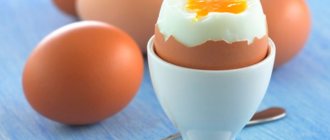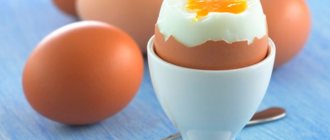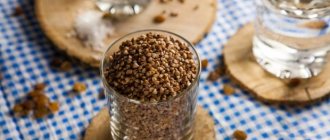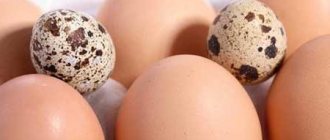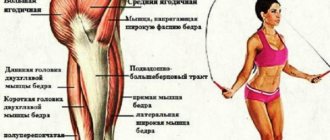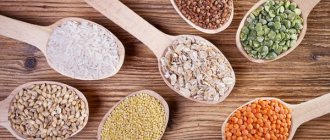Eggs are a frequent guest in our diet. Some people prefer to eat them raw. Most often, this option is preferred by athletes to gain muscle mass. But most prefer to cook eggs: soft-boiled, hard-boiled, poached, in a “bag”. There are many variations in the preparation of this natural product. But for those who carefully monitor their diet, it is important to know the calorie content of a boiled egg.
Useful properties of eggs
Today we know a lot about the benefits of protein and yolk. But not only they have long been used in folk medicine. The shell is also irreplaceable in a number of cases.
Chicken eggs have a unique set of 12 vitamins, including A, E, group B, etc. For example, in terms of the volume of vitamin D, its yolk is slightly inferior only to fish oil. Chicken eggs contain minerals: iodine, phosphorus, calcium, iron, magnesium, etc. They are rich in amino acids.
Beneficial properties of chicken eggs:
- They provide the body with the necessary minerals and vitamins, strengthen the immune system, and prevent cardiovascular diseases.
- They prevent the occurrence of oncological diseases, for example, breast cancer, and also normalize the functioning of the gastrointestinal tract, and are excellent for helping with peptic ulcers.
- Improve vision, reduce the risk of cataracts, strengthen bone tissue, and promote calcium absorption.
- The products are also good for muscle tissue, as they contain a lot of protein necessary for its construction.
- They improve brain function, memory and mental abilities.
- They improve mood and have a beneficial effect on the nervous system.
- They contain folic acid, which is necessary for cell division, and therefore are useful for pregnant and nursing mothers, as well as women planning a pregnancy.
- They improve sperm quality, so men should also use them when planning pregnancy.
- Nutritionists recommend that athletes, people who experience heavy daily physical activity and who want to lose weight, have boiled chicken eggs for breakfast.
- The products improve the condition of teeth, nails and hair.
However, eating eggs in large quantities can harm your kidneys.
Nutritional value, composition and calorie content
A hard-boiled egg is rich in nutrients, protein and healthy fats. One large hard-boiled egg (50 grams) contains (as a % of the recommended daily intake) (1):
- Calorie content : 77.5 kcal (4%).
- Carbohydrates : 0.6 g (0%).
- Fat : 5.3 g (8%).
- Protein : 6.3 g (13%).
- Vitamin A : 293 IU (6%).
- Riboflavin : 0.3 mg (15%).
- Folate : 22 mg (5%).
- Vitamin B12 : 0.6 mcg (9%).
- Pantothenic acid : 0.7 mg (7%).
- Phosphorus : 86 mg (9%).
- Selenium : 15.4 mg (22%).
- Cholesterol : 212 mg (71%).
- Omega-3 fatty acids : 39 mg.
- Omega-6 fatty acids : 594 mg.
One large hard-boiled egg also contains trace amounts of vitamins and minerals such as vitamin E, vitamin K, thiamine, vitamin B6, betaine, calcium, iron, magnesium, potassium, sodium, zinc and manganese.
Despite the huge amount of nutrients contained in hard-boiled eggs, this product is a fairly low-calorie food. One hard-boiled egg contains only 77 calories, 5 grams of fat and very few carbohydrates.
One large hard-boiled egg also contains a decent amount of protein, with over 6 grams.
In addition, eggs contain a complete set of amino acids, which means they are a complete source of protein.
Hard-boiled eggs also contain a variety of important nutrients, including vitamin D, zinc, calcium and all B vitamins. They are a particularly good source of riboflavin (vitamin B2) and vitamin B12.
Many of the nutrients in eggs are found solely in the yolk, while egg whites contain mostly protein (2).
Summary:
One large hard-boiled egg (50g) is low in calories and rich in many important vitamins, minerals and nutrients. While the yolk provides your body with nutrients, fats, and protein, the egg white contains mostly protein.
How good are eggs for weight loss?
Chicken eggs have a number of properties, the presence of which in the product promotes weight loss:
- Rich in protein - a filling product, and therefore their consumption for breakfast helps to reduce appetite and, as a result, gain calories.
- Protein foods require high energy costs during digestion (about 30% of the total calorie content of protein consumed), and therefore are useful for losing weight. For comparison: for carbohydrates and fats this figure is 10%.
- The amino acids present in the egg improve metabolic processes in the human body.
However, these properties apply to a lesser extent to raw foods.
Improves brain and eye health
Eggs provide your body with important essential nutrients and antioxidants that support brain and eye health.
Kholin
Choline is an essential nutrient for many critical processes in your body.
Your body does produce some choline, but not in large quantities. Therefore, you should get choline from your diet to avoid deficiency (14).
However, most people today do not consume enough of it (15, 16).
Choline is critical to maintaining a healthy nervous system as it helps produce acetylcholine, a neurotransmitter involved in memory and learning (17).
Choline is important throughout your life. It promotes fetal brain development and memory, as well as cognitive function in older adults (15, 18).
It is also vital for pregnant women, as adequate choline levels may reduce the risk of neural tube defects in the fetus (19).
Choline is found in the yolk - one large hard-boiled egg contains 147 mg of choline, which is 27% of the daily value. In fact, eggs are the most concentrated source of choline (14, 15).
Lutein and Zeaxanthin
Lutein and zeaxanthin are two antioxidants best known for their role in eye health.
They fight the harmful effects of free radicals that can accumulate in your eyes (20, 21).
Lutein and zeaxanthin have been shown to slow the development of cataracts and protect against age-related macular degeneration (macular degeneration) (22, 23).
They may even protect your eyes from harmful blue light (24, 25).
Egg yolks are an excellent source of these two carotenoids.
Plus, thanks to the fat contained in the yolk, your body seems to absorb lutein and zeaxanthin very well (26, 27).
Summary:
Egg yolks are an excellent source of choline, which is essential for brain health and development. They are also rich in lutein and zeaxanthin, antioxidants that promote eye health.
Calorie content of eggs
Egg is that rare product that is almost 100% digestible. A medium-sized chicken egg weighs about 45 g and, accordingly, contains 75 kcal. However, we must remember that its energy value is directly related to the method of preparation.
| № | Cooking method | Calls per 100 g | Proteins (g) | Carbohydrates (g) | Fat (g) |
| 1 | Hard boiled | 155 | 12,6 | 1,1 | 10,6 |
| 2 | Soft-boiled | 158,7 | 12,8 | 0,7 | 11,6 |
| 3 | Fried in oil | 196 | 13,6 | 0,8 | 14,8 |
| 4 | Poached | 143 | 12,5 | 0,7 | 9,5 |
| 5 | Omelette | 154 | 10,6 | 0,6 | 1,7 |
| 6 | Fried egg | 243 | 12,9 | 0,9 | 20,9 |
| 7 | Scrambled eggs | 149 | 10 | 1,6 | 10,9 |
A chicken egg is a tasty and healthy product, and therefore today you can count hundreds of famous recipes using it: from simple scrambled eggs to the delights of confectionery art. The main thing is not to overdo it.
Calorie content of boiled chicken egg
The average value of 1 boiled egg is 70 kcal. But in order to determine this figure with maximum accuracy, you need to know the characteristics of cooking and the duration of heat treatment of the product. If you calculate calories not per piece, but by weight, then the values may vary.
The easiest way to determine the calorie content of a boiled egg is from the table:
| Product (100 g) | Calorie content (kcal) |
| Boiled soft-boiled | 154 |
| Poached | 146 |
| Hard boiled | 160 |
| Boiled yolk | 352 |
| Boiled protein | 44 |
| Boiled with mayonnaise | 145 |
| In the "bag" | 120,5 |
The table shows the values of the C1 grade product. In the homemade product, the figures are slightly higher, since the eggs are slightly larger.
Many nutritionists (and the table proves this!) consider the yolk to be the most high-calorie part of the egg. But the protein is “lighter”. That is why it is recommended to include it in the diet.
In its raw form, the egg has almost the same characteristics. But after frying, the figure increases several times.
Usage rate
How many eggs can a person eat per day or week? This depends on his age, health status and normal daily physical activity:
- A non-ill adult who receives moderate exercise should eat an average of 3 to 5 eggs per week.
- Athletes and people who, due to their professional activities, experience heavy physical activity, need increased protein consumption, and therefore can eat from 15 to 20 eggs within 7-8 days.
- For a preschooler, the norm is 1-2 per week.
- It is generally not recommended to give the product to children under one year of age. They should be introduced into the baby’s diet with caution from about one and a half years. First, the protein is given, and if it does not cause an allergic reaction, then the yolk can be included in the diet.
It is better to start introducing it into your child’s diet in boiled form. This is the safest type of heat treatment, which does not cause additional stress on the gastrointestinal tract.
Recommended video:
The benefits and harms of boiled eggs for weight loss
A chicken egg contains a large amount of useful substances. The protein that the product contains is the most digestible and contains a large number of useful elements.
The substances that egg whites contain help restore immunity after various diseases, and are also required for the development process, especially for children.
The yolk contains microelements such as:
- Vitamins of groups A, B, E
- Calcium
- Iron
- Phosphorus
- Kholin
- Lecithin
For those who want to lose extra pounds, consuming this product can reduce calories consumed and satisfy the feeling of hunger.
Nutritionists recommend consuming boiled eggs during the weight loss procedure to saturate the body with useful substances, and consuming the product for breakfast allows you to get the necessary energy, while the number of calories consumed remains low.
However, in addition to beneficial properties, the product has some harmful ones. It should be noted that the consumption of the product should be reduced to the following categories of people:
- If you have protein intolerance
- For allergic reactions to yolk
- People who have high cholesterol levels
- Presence of diabetes mellitus
- Previous heart attacks and strokes.
Let's celebrate! It is also necessary to take into account the fact that consuming large quantities of the product also has a negative impact on a person’s well-being, especially when following a diet. People suffering from obesity should be very careful when consuming egg yolks, as constipation may worsen.
Daily consumption rate
In order for the product to be beneficial, experts recommend eating no more than 4 pieces per day. If this indicator is exceeded, a person is at risk of increasing cholesterol levels.
For those who want to lose weight, the permissible norm per day is no more than 2 pieces. For people suffering from diabetes mellitus, the permissible norm of the product is no more than one per week.
Note! Dietary nutrition experts note that it is advisable to consume the product in hard-boiled or soft-boiled form. Eating raw food of this type is practically not absorbed by the body and can lead to the presence of a dangerous stomach disease.
Dietary recipes for weight loss
Offers the simplest and most delicious dishes with eggs for weight loss
Egg salad with cherry tomatoes
- Wash the lettuce leaves, dry them and place 1-3 on a plate.
- Boil 3-4 eggs, peel, cut in half and place on lettuce leaves.
- Cut the same number of tomatoes and place them on plates next to the eggs.
- Mix 1 tbsp olive oil, balsamic vinegar, Provençal herbs (to taste), chopped garlic clove and a pinch of salt until smooth.
- Pour the resulting dressing over the eggs and tomatoes just before serving.
The dish can be additionally decorated with herbs.
Omelette in the oven
A tender and light omelette with vegetables is the most dietary and healthy dish.
- Beat 5 eggs, mix with 1 tbsp. milk and a pinch of salt.
- Grease a baking dish with a thin layer of vegetable oil. Pour the whipped mixture into it.
- Cook for 20 minutes. in an oven preheated to 150 degrees.
You can serve the finished dish with bran bread.
How to choose and store eggs correctly?
In order to choose the right quality product, you should pay attention to some factors, such as:
- Shell integrity
- The shell must be clean without traces of dirt
- The shell must have a uniform surface without deformation
Good to know! According to all standards, when purchasing products at retail outlets, there must be a special marking that indicates to the buyer the shelf life and what category the product belongs to.
The degree of freshness of the product is of great importance; this indicator can be determined in several ways:
- The shell of a fresh product should not be glossy; a fresh egg has a matte surface.
- There should be no sounds during shaking.
- A product that is not fresh tends to float in salt water.
- When split, the protein should not contain additional impurities and be absolutely transparent in color.
- When cleaning a cooked product, removing the shell from a fresh product will be problematic.
Egg whites and yolks are components of many common dishes, so almost every home has a decent supply of this kind of product. Also, this product differs from many other types of food in its long shelf life.
Note! This product can be stored for up to three weeks in the refrigerator and two weeks at room temperature. The prepared product can be stored in the refrigerator for up to two weeks, while all the beneficial substances will be preserved in full.
For proper storage, some rules should be taken into account:
- Storage should be done in the refrigerator in a specially designated place, where the temperature is several degrees higher.
- The product must be placed with the pointed parts facing down.
- It is unacceptable to wash the surface of the shell, this will reduce the shelf life
- Great attention should be paid to the expiration date, which is indicated on special labeling.
If the shell is cracked, be sure to wipe the remaining eggs with a clean cloth to avoid the appearance of an unpleasant odor.
Types [edit | edit code ]
The most commonly eaten eggs are chicken, duck and goose eggs. But turkey, quail, ostrich eggs and eggs of other birds are also eaten.
Different breeds of chickens lay different colored eggs. The color of an egg has nothing to do with its nutritional properties. In Russia and the USA, chicken eggs are usually white or light beige; in the UK they are usually light brown.
In addition to bird eggs, turtle eggs [4] and others are used as food:
| Type of eggs | Average weight of 1 egg, g | Minimum permissible weight of 1 egg [1] [5], g |
| Chicken | 55 | 35 |
| Quail | 10-12 | 10 |
| Duck | 90 | 75 |
| Goose | 200 | 160 |
| Turkey | 75 | 60 |
| Pheasant | 60 | |
| Ostrich | 1000 | 650 |
| Emu | 780 | |
| Guinea fowl | 43-48 | 36 |
Not all eggs are the same
Only at first glance it may seem that all chicken eggs are the same and there is no difference which tray to buy [12]. In fact, the nutritional value and composition of the beneficial components of this product directly depends on the diet of chickens and their living conditions. Specimens laid by domestic chickens that regularly go outside and eat grass are considered more useful. In addition, domestic layers are 98% less likely to become infected with salmonella.
According to some sources, compared to farm eggs, home eggs contain:
- one third less cholesterol;
- a quarter less saturated fat;
- 2/3 more vitamin A;
- 2 times more omega-3;
- 3 times more vitamin E;
- 7 times more beta-carotene.
Chemical composition of eggs [edit | edit code ]
The composition varies depending on the type, breed, age, conditions of keeping and feeding of poultry [1]:
| Type of eggs | Content, % | Calorie content of 100 g of egg mass, kcal/kJ | ||||
| Squirrels | Fats | Carbohydrates | Minerals | Water | ||
| Chicken | 12,57 | 12,02 | 0,67 | 1,07 | 73,67 | 158/663 |
| Duck | 12,77 | 15,04 | 1,08 | 70,81 | 184/772 | |
| Goose | 13,90 | 13,30 | 1,31 | 1,10 | 70,40 | 180/756 |
| Turkey | 13,104 | 11,80 | 1,20 | 0,80 | 73,1 | 165/693 |
Cooking method
It is not recommended to immediately immerse very cooled chicken eggs in hot water and boil them, as this can lead to cracking of the shell, partial release of the protein and distortion of the external attractiveness of the product.
In order to boil them properly, you need:
- Place the required amount of product in a saucepan, add water and place it on medium-intensity heat;
- to prevent cracks from appearing, it is recommended to lightly pierce the shell with a sewing needle from the obtuse angle;
- add a teaspoon of salt to the water;
- After the water boils, cook the eggs for several minutes until they are soft-boiled, and 8-10 minutes for hard-boiled eggs.
It is recommended to transfer boiled eggs into a container with cold water, which will not only allow them to quickly cool, but will facilitate the process of peeling them.
